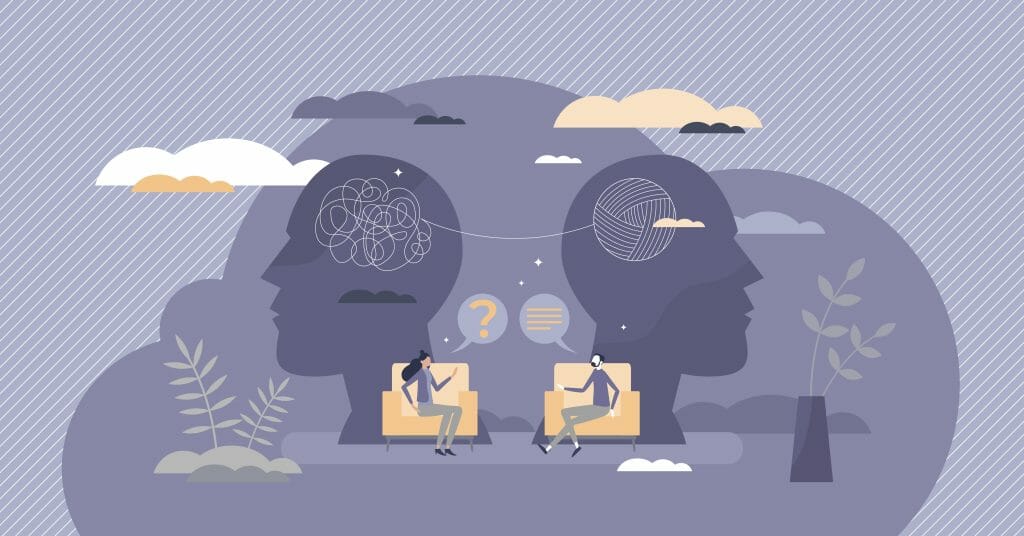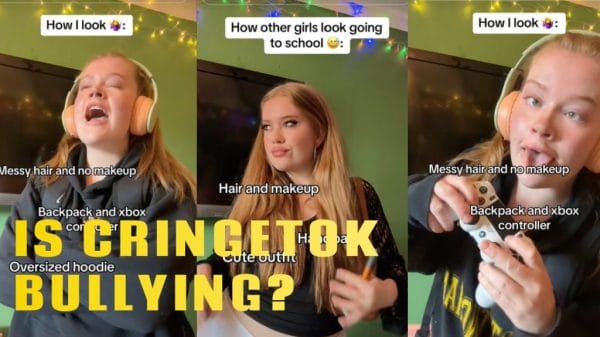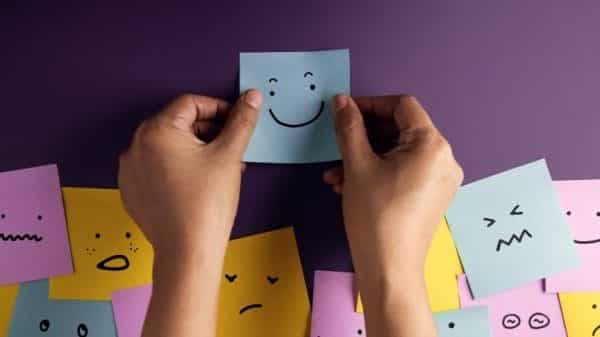Of all the things to resurrect a school group chat, I didn’t expect it to be a shady online therapy app. My first thought was to investigate.
Free Therapy or Flop?
Fiona*
Hi guys, I hope you are all doing well after finishing at [school]! I’ve become a brand ambassador of an app called WG*. […] If you could check it out with my referral code: [Code], that would be great! […]
This message appeared in several WhatsApp groups from our old school, created for subjects and our smaller seminar groups. So, I removed one from the archive and asked some questions.
Still remembering the actions of a litigious online therapy site BH*, and the referral code scheme that gave kickbacks to YouTubers that promoted the site, it raised flags left and right.
And all of those flags were red.

Credit: fizkes/Shutterstock
One: Why would we need a referral code if there were free fifteen-minute sessions?
Two: Instant help from a therapist? Surely that presented the risk of seeking out too much therapy? What about boundaries and teaching resilience.
Three: What were the safeguarding policies? On an entirely anonymous platform, how were therapists supposed to step in and protect users that were an immediate risk to themselves? By extension, how were the therapists protected?
And, finally:
Four: Why did a therapy app need a brand ambassador? And, once again, what purpose did the referral code serve?
So, I sent a message. I asked how Fiona had been recruited and assumed it was similar to the many Instagram spam messages I kept getting.
Then, I waited for a response.
Who Was A Target?
I knew Fiona back when we shared classes together. We discussed our struggles and bonded over our mutual experiences within the British mental health system. Having a nuanced conversation about such a sensitive subject was refreshing, so her messages surprised me.
It felt out of character.
Fiona
It is completely anonymous; no data is shared. You only share what you want. If the therapist/counselor feels that you need to be referred to a GP or something else, they will let you know.
What did you want to know about the brand ambassador Role?
Much like BH, WG cannot diagnose. But, seeing the rise of self-diagnosis, is it safe for therapists to take clients at their word? To offer specialized therapeutic interventions with no ability to deal with emergency situations?

Credit: fizkes/Shutterstock
I drafted my subsequent response. And I worried about whether anonymity was good when emergency interventions often mean life or death.
Izzi
[…] I’m reminded of BH and the issues they had. None of the information I’d need to look at is readily accessible. […] Some therapeutic interventions don’t work if you have XYZ disorder, but I can’t find much on how they avoid those issues.
With the brand ambassador [role], I’m mostly just curious about how they contacted people and selected them.
Fiona
I’ll pass this feedback on; thank you. There is a lack of assessments because it is not clinical therapy. As a brand ambassador myself, I can say they did not contact me; the job role was advertised.
Another former classmate stepped in and asked if she was getting that bag; Fiona told us she wasn’t. I cracked my knuckles and started to Google the site, eventually finding that Reddit had fascinating interactions.
Royalty-Free Trauma
For an allegedly ‘brand new’ app, I found marketing on Reddit from years ago. The service, purporting to be for adults only, was advertised by someone I could reliably trace back to the CEO. I found posts in subreddits aimed at recovery, self-help, trauma disorders, and parenting. In one instance, it was suggested to a parent for their twelve-year-old daughter.
This twelve-year-old completed at least one session on the app, as evidenced by other posts on the original account. The reason I believe it’s genuine is that the feedback didn’t seem to be the most positive. More a whelmed reaction as they sought out in-person therapy instead.
I was told the person advertising it was ‘incorrect’ and that the app was not for minors. But, even if I ignored a history of ‘misinformed’ promotion, I couldn’t look past the T&Cs.
To quote:
You hereby grant us a perpetual, royalty-free, irrevocable, worldwide, transferable and sub-licensable license in and to the content of any chat log recorded on our Platform in connection with the Consultation Services, for us to reproduce as we see fit, without restriction (other than any restrictions imposed by law).
WG T&Cs
BH was caught selling data to advertisers found on sites like Facebook, regardless of whether a person sought out therapy and shared information beyond the intake form.
So, can we even trust online-only therapy? Or, is the safest approach through hybrid therapy; a way for us to know that our therapist is qualified?
Does it Help?
After much consideration and a few concerns about the safety of it all, I selected my therapist from the list and signed up for my fifteen-minute session. The queue didn’t take long, and I was thrust into a session before I knew it. A basic messaging system appeared, and my therapist and I introduced ourselves.
I took screenshots, anticipating writing this article. I didn’t realize that they would be the only proof of my conversation later on, which – combined with the irrevocable access to your conversations – created an additional sense of unease.
Kate*
what brings you here today?
Izzi
somebody suggested I try the app, so here I am. I was curious about how much you can help with
Oddly enough, my biggest issue thus far was the removal of auto-capitalization. I gave up manually adding it in, but it created a weird vibe as if this was more ‘casual’ than therapy. For the sake of readability, I’ve corrected it here.
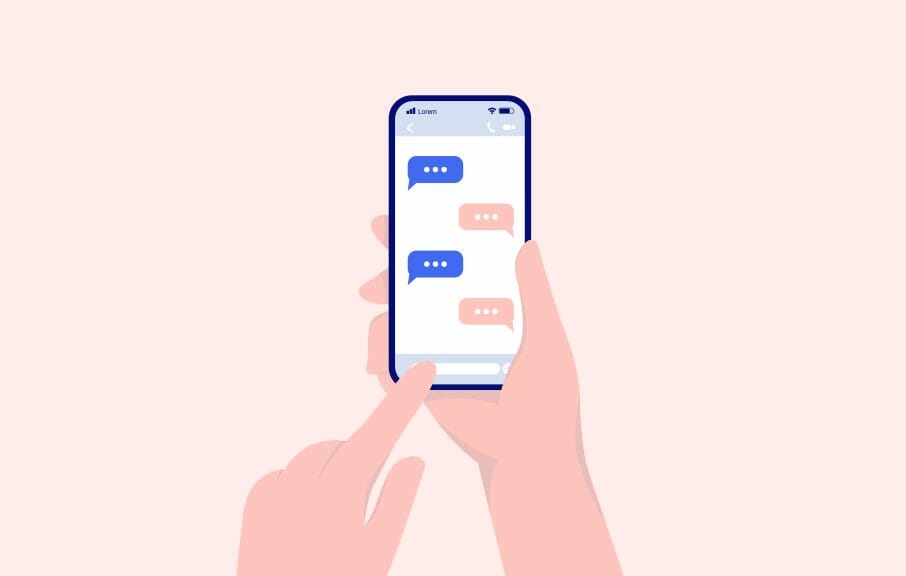
Credit: Overearth/Shutterstock
Kate sent her last message at 5:57 pm. I saw her typing indicator there and waited patiently. Taking turns in a written conversation is trickier. Still, I didn’t want to interrupt her, so her typing indicator remained undisturbed by mine.
Kate
Are you still there?
Izzi
I am; sorry! It showed you typing, haha.
I didn’t want to interrupt.
Kate
Oh, that must have been a glitch!!
Izzi
That explains it, haha!
I lost a decent chunk of my fifteen-minute session to this glitch. While the app wasn’t an emergency intervention, seeking help can be challenging, and feeling like you’ve done something ‘wrong’ is deeply upsetting. This is a downside that teletherapy doesn’t face, at least not in the same manner. And it’s a glaring downside that text therapy, especially in such an informal context, struggles with.
Blurred Lines
I’ve had EMDR therapy to deal with my PTSD. When the pandemic began, my therapist and I shifted online. I don’t feel platforms like this can provide what is needed. And, knowing they can share my information anywhere they like, I don’t think I would feel safe opening up there.
The staggering increase in self-diagnosis of severe health issues worries me. While WG claims it is for users aged eighteen and above, I have seen it suggested to parents for their underage children. And children lie about their ages online. What is to say that the same young people spouting harmful rhetoric about diagnoses being privileged aren’t also using these apps to further pathologize normal behaviors?
Izzi
I was going to ask about what sorts of support you offer. I saw some of you have EMDR and stuff listed, and I was curious.
Kate
Personally, I usually mix a few therapies to get the best for the people I work with.
I can’t do EMDR here as such, but I can help with trauma in other ways.
Izzi
Got it 🙂 So being diagnosed with stuff wouldn’t impact support here?
Kate
Not remotely; we are here for mental health, and most people I’ve spoken with are diagnosed.
In some ways, it makes it easier to know how to help.
Critiquing the System
I told Kate an abridged version of my experiences in the UK’s adolescent mental health services and how I wasn’t correctly transferred to adult support or supported during a crisis. Luckily, I had my EMDR therapist, but so many others can’t say the same.
I didn’t expect the response she gave, however. I’ve cut out certain sections to keep her mostly anonymous, but I don’t think it lessens the impact.
Kate
[…] 18 is too young for most people, and adult mental health lacks compassion, kindness, and nurturing.
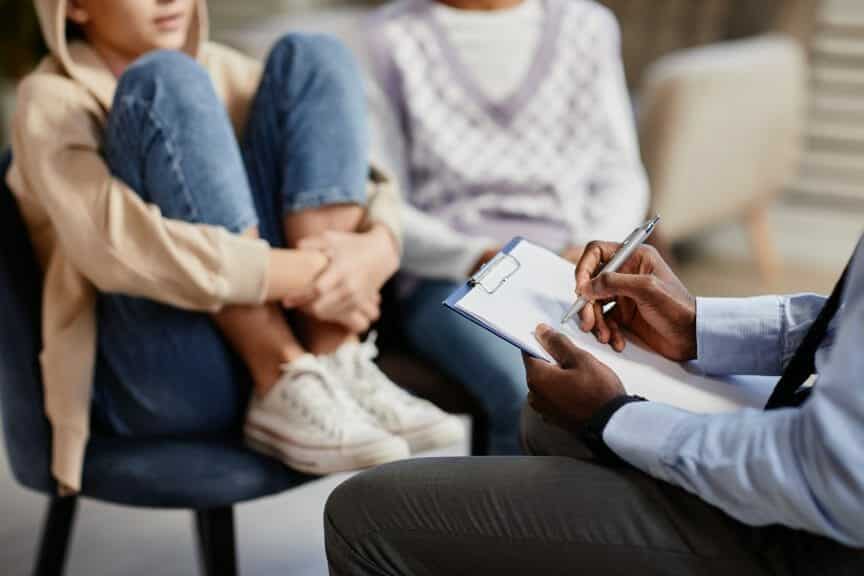
Credit: SeventyFour/Shutterstock
This, coming from a professional working in the service, had me torn. On the one hand, I understand. My experience was soul-destroying, and I felt for those who wanted to do more but couldn’t. But I also don’t think it is appropriate to critique the adult system that so many vulnerable young adults are transferred into, suggesting it lacks compassion.
But, at the time, I agreed. Mentioned how, during the pandemic, you couldn’t even see a GP to get help.
Kate
Most young people don’t even get transferred; it is rubbish.
If you fancy-free sessions, I’d love to try to help you.
I’ll be here at the weekend, and you don’t have to pay.
The critique of our mental health services makes a lot more sense all of a sudden.
Recruited in Therapy
I discovered, all of a sudden, why the referral codes existed. Each week the site gave £150 to whichever ambassador gained the most sign-ups that week. Free use of the platform whenever they needed it.
My fifteen-minute chat had gone on a lot longer than fifteen minutes. The messages I was being sent seemed like internal memos, with the pings used on platforms like Slack still included.
To the site, to this therapist, I am nobody. My safety hasn’t been verified. My identity was much the same.
When I told the ambassador, she wanted to know which therapist had shared this information. I felt bad for calling out the referral scheme, really, and the free therapy. I can understand relying on it to thrive.
So I didn’t share a name. But the reaction to my finding this out pushed me away from the app.
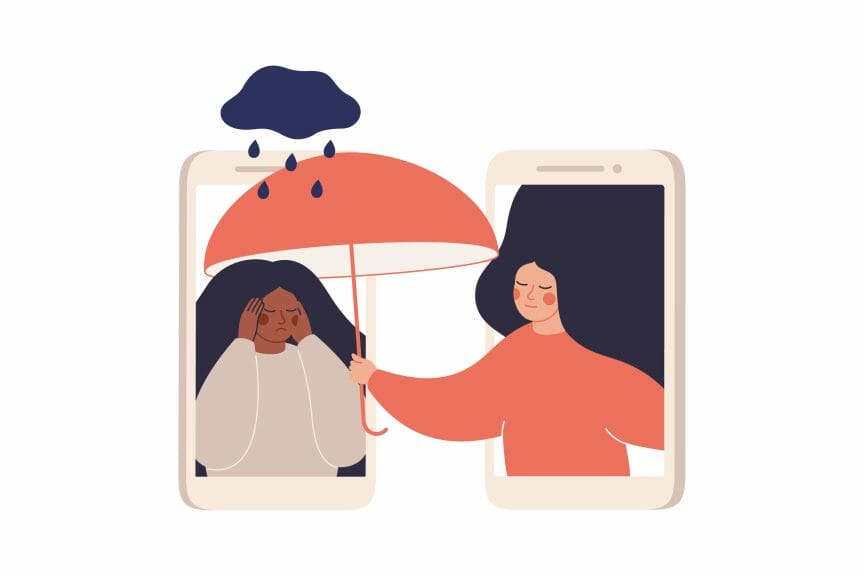
Credit: Mary Long/Shutterstock
I couldn’t, in good conscience, become an ambassador at my university. Nor profit off the vulnerability of the students around me, strapped for cash.
I couldn’t accept ‘free’ therapy at a cost to another.
Admitting that you need help is difficult.
Telling somebody involves a level of vulnerability and trust not quickly gained.
Offering your shoulder to somebody, your suggestions, some resources, and support should not come with ill-disclosed benefits for yourself.
Compassion should not have conditions.
Nobody is Protected
BH listed therapists on their site with information scraped from other sites and registries. Personal phone numbers and further details were listed, but the site would then tell you the selected therapist was unavailable and to choose somebody else from their site.
They were available, after all, and who would want to wait?
The issue is those therapists had never listed themselves on there in the first place. It was a bait and switch. But now their personal information was out there for anybody to find.
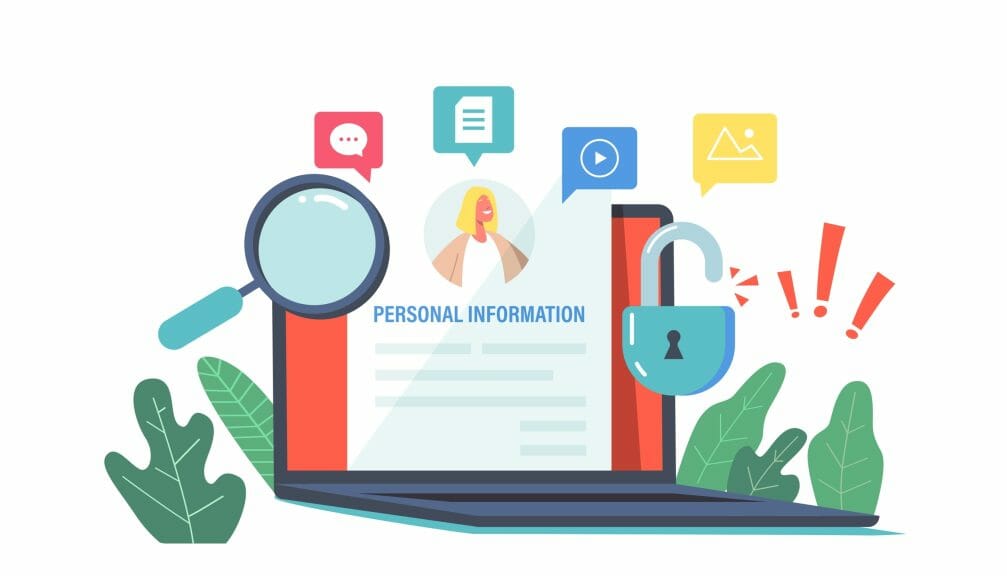
Credit: ivector/Shutterstock
And yet, I still see YouTubers accepting sponsorships. The first round of backlash died down. Now it’s business as usual, with no regard for the people they’ve strategically backed into a legal corner. Silenced, not censored.
If a company with annual revenue in the millions can do so much so openly, what’s to say the new companies can’t (or won’t) do the same? WG is already willing to sell user data, their generous free sessions and referral bonuses are developing a darker context, and I worry that their willingness to pitch to people within sessions will only worsen it.
Therapists shouldn’t pitch products or jobs to you. Clients (if you can even consider me a client) aren’t supposed to be privy to the company’s internal communications. I saw full names, personal emails, and so many details that could be dangerous in a different situation.
Some patients stalk, harass, harm, and – on the extreme end – even kill their therapists. And that worries me.
Did I feel safe using the app? Not really, no.
And, really, that is the biggest problem with online therapy apps. You must always be alert, be suspicious, be cynical.
Who does that really help?
*Names of apps and individuals have been changed.


